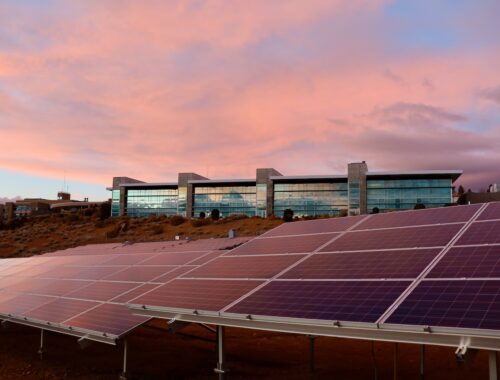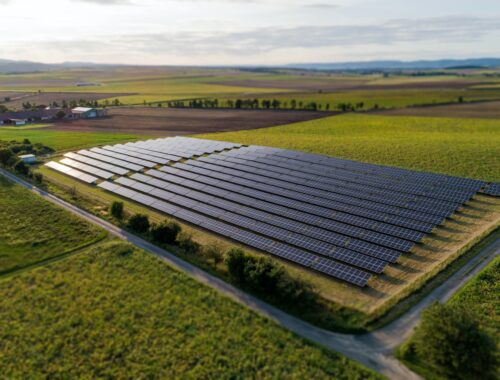Is solar energy important in our life?
Solar energy is an increasingly important source of energy in our lives, as the world faces an energy crisis and the need for clean, renewable energy sources becomes more pressing. Solar energy is a clean, renewable, and sustainable source of energy that offers a number of benefits, including scalability, reliability, versatility, environmental benefits, economic benefits, decentralization, and the potential to reduce energy poverty.
One of the main reasons why solar energy is important in our lives is its potential to help reduce dependence on non-renewable energy sources, such as coal, oil, and natural gas. These non-renewable energy sources are finite, and as they are depleted, their cost is likely to increase. In addition, the use of these non-renewable energy sources contributes to greenhouse gas emissions and air and water pollution, which can have negative impacts on the environment and human health.
Another reason why solar energy is important in our lives is its potential to help reduce energy costs for homes and businesses. Solar panels can be installed on homes and businesses to generate clean, sustainable, and cost-effective electricity, reducing dependence on traditional energy sources and reducing energy bills. As the cost of solar energy continues to decline, it is likely that even more homes and businesses will adopt solar energy, helping to reduce energy costs and improve energy efficiency.

Kindel Media
Solar energy is also important in our lives because of its potential to help reduce greenhouse gas emissions and improve air quality. The use of solar energy does not produce greenhouse gas emissions, and it does not contribute to air or water pollution. By reducing dependence on non-renewable energy sources and reducing greenhouse gas emissions, the use of solar energy can help to improve air quality and protect the environment for future generations.
Another important reason why solar energy is important in our lives is its potential to improve access to electricity in developing countries. Access to electricity is a critical component of economic and social development, and the use of solar energy can help to provide access to electricity in areas where traditional energy sources may be limited or unavailable. This can help to improve access to education, healthcare, and other essential services, and it can help to reduce poverty and improve the quality of life for people in these areas.
Another reason why solar energy is important in our lives is its scalability. Solar panels can be installed on homes and businesses, or they can be installed in large-scale installations, such as solar farms, to generate significant amounts of electricity for entire communities, regions, or even countries. This scalability makes it an ideal source of energy for communities of all sizes, and it can be adapted to meet the unique energy needs of each community.
Solar energy is also a reliable source of energy, as it is not subject to the same fluctuations and interruptions as traditional energy sources. Solar panels generate electricity even on cloudy days, and they can continue to generate electricity even during power outages, providing a reliable source of energy for homes and businesses.
Another advantage of solar energy is its versatility. Solar panels can be installed on rooftops, walls, or even on the ground, making it a versatile source of energy that can be used in a variety of settings. This versatility makes it an ideal source of energy for homes, businesses, and communities in both urban and rural areas.
It’s also worth mentioning that solar energy can provide economic benefits. The use of solar energy can create jobs in the installation, maintenance, and manufacturing of solar panels and related equipment. In addition, the use of solar energy can help to reduce the cost of energy for homes and businesses, providing a cost-effective source of energy that can help to reduce energy bills.
Solar energy is also a decentralized source of energy, meaning that it can be generated and used locally, reducing the need for long-distance energy transmission and reducing the risk of energy loss in transmission. This decentralization of energy generation can also help to improve energy security and reduce the dependence on energy imports.
Another important aspect of solar energy is its role in helping to combat climate change. Climate change is one of the biggest challenges facing the world today, and the use of solar energy can help to mitigate its impacts by reducing greenhouse gas emissions. Solar energy does not produce greenhouse gas emissions, and as more homes and businesses adopt solar energy, it will help to reduce the overall demand for non-renewable energy sources, which are major contributors to greenhouse gas emissions.
In addition, the use of solar energy can help to improve energy independence and energy security. By generating electricity locally, solar energy can help to reduce the dependence on energy imports and reduce the risk of energy shortages. This can help to improve energy independence and energy security, particularly in developing countries, where access to electricity is limited and the dependence on energy imports is high.
It is worth mentioning that the use of solar energy is growing rapidly around the world. Governments and businesses are investing in solar energy as a way to reduce dependence on non-renewable energy sources, reduce greenhouse gas emissions, and improve access to electricity. As technology continues to improve and the cost of solar energy continues to decrease, it is likely that we will see even more widespread adoption of solar energy in the years to come.
Furthermore, solar energy is important in our lives because of its potential to create jobs in the installation, maintenance, and manufacturing of solar panels and related equipment. As the use of solar energy continues to grow, it is likely that more jobs will be created in these industries, providing a boost to the economy and helping to reduce unemployment.
In conclusion, solar energy is an increasingly important source of energy in our lives, offering a number of benefits, including the potential to reduce dependence on non-renewable energy sources, reduce energy costs, reduce greenhouse gas emissions, improve air quality, improve access to electricity in developing countries, and create jobs. As technology continues to improve and the cost of solar energy continues to decline, it is likely that we will see even more widespread adoption of solar energy in the years to come. Whether you are looking for a source of electricity for your home, business, or community, or you are interested in reducing your dependence on non-renewable energy sources, solar energy has a lot to offer.
You May Also Like

Solar Power in Disaster Relief: Portable and Off-grid Solutions
October 16, 2023
How much solar energy can a single panel produce?
April 21, 2023